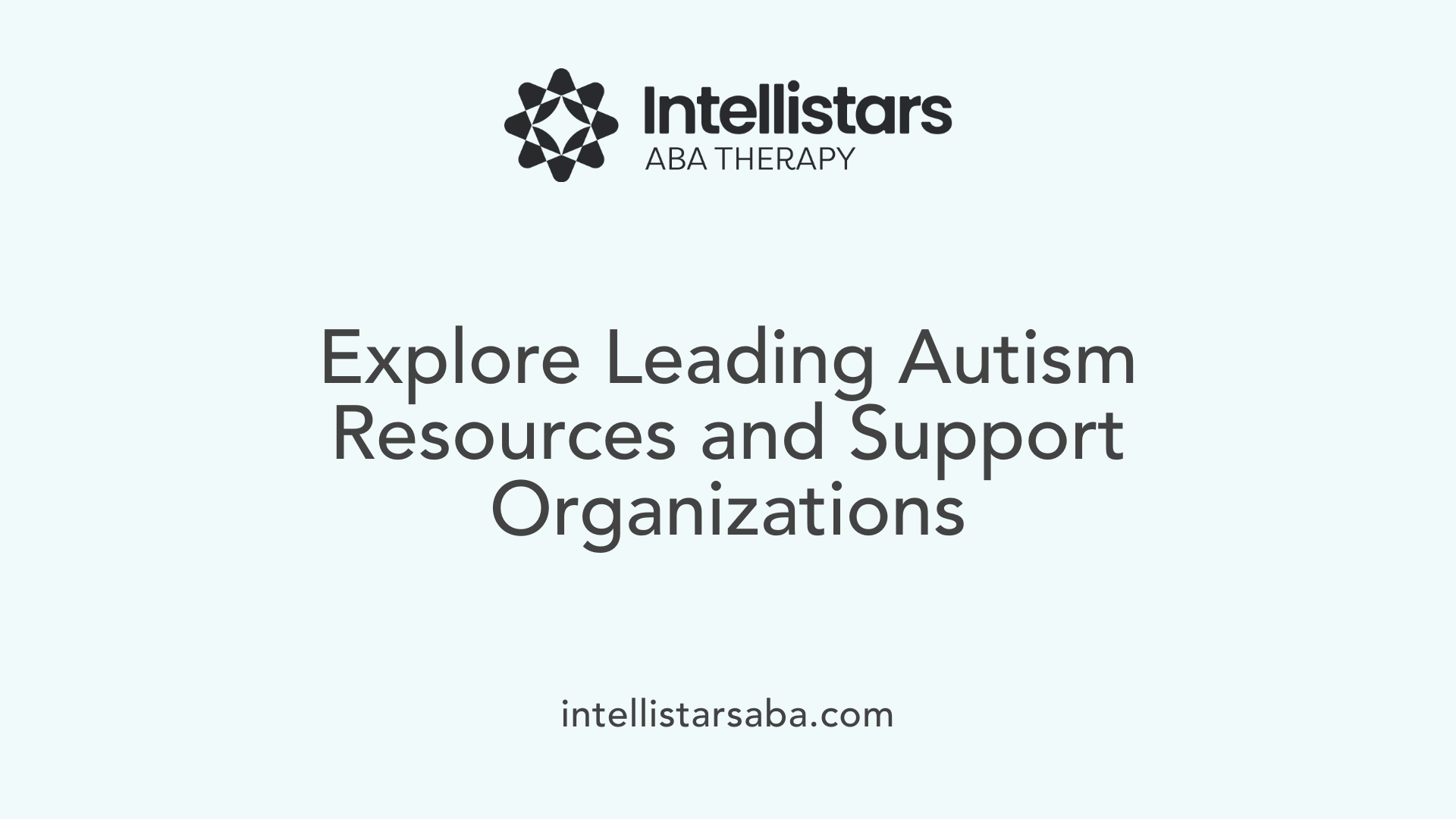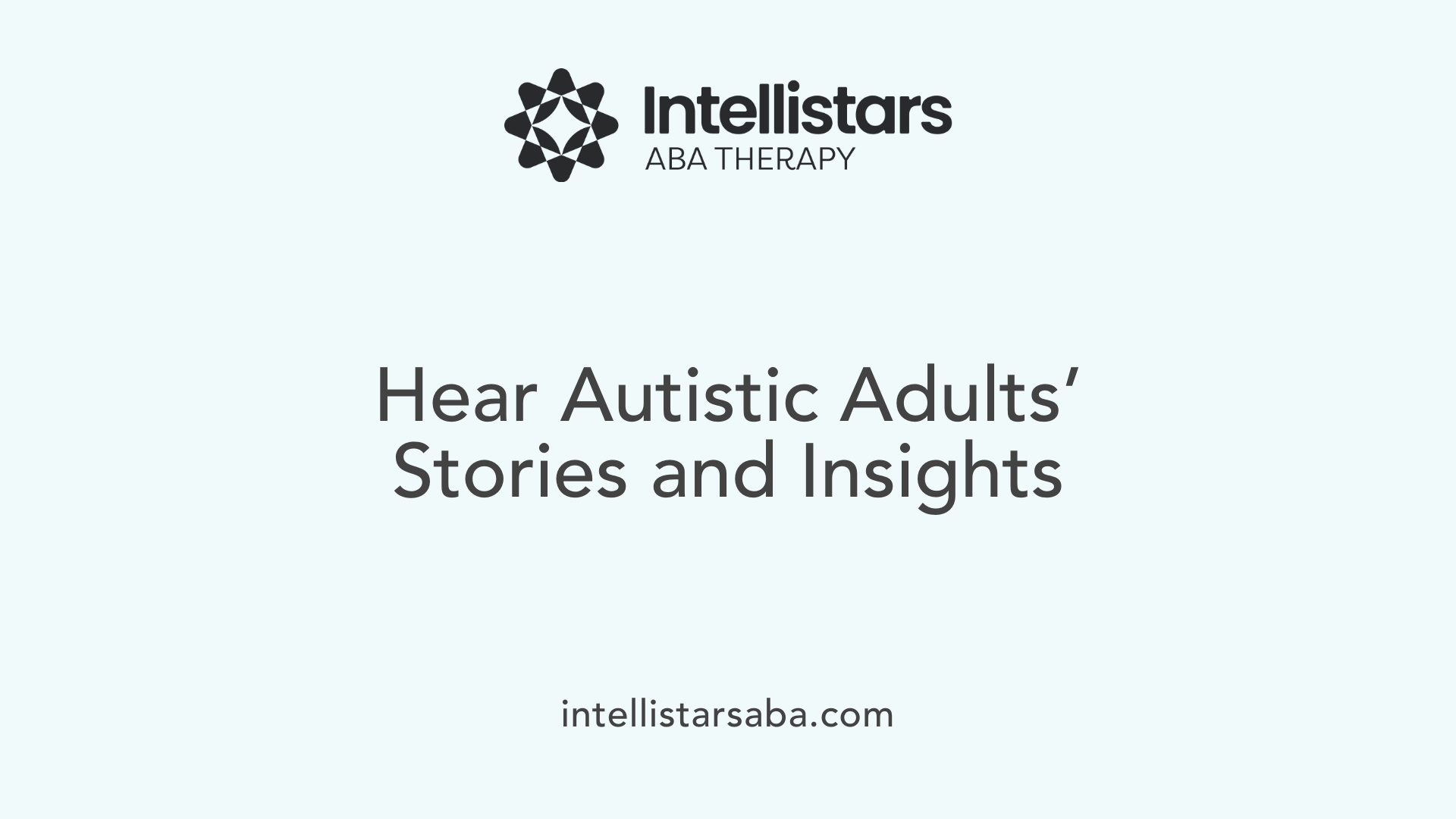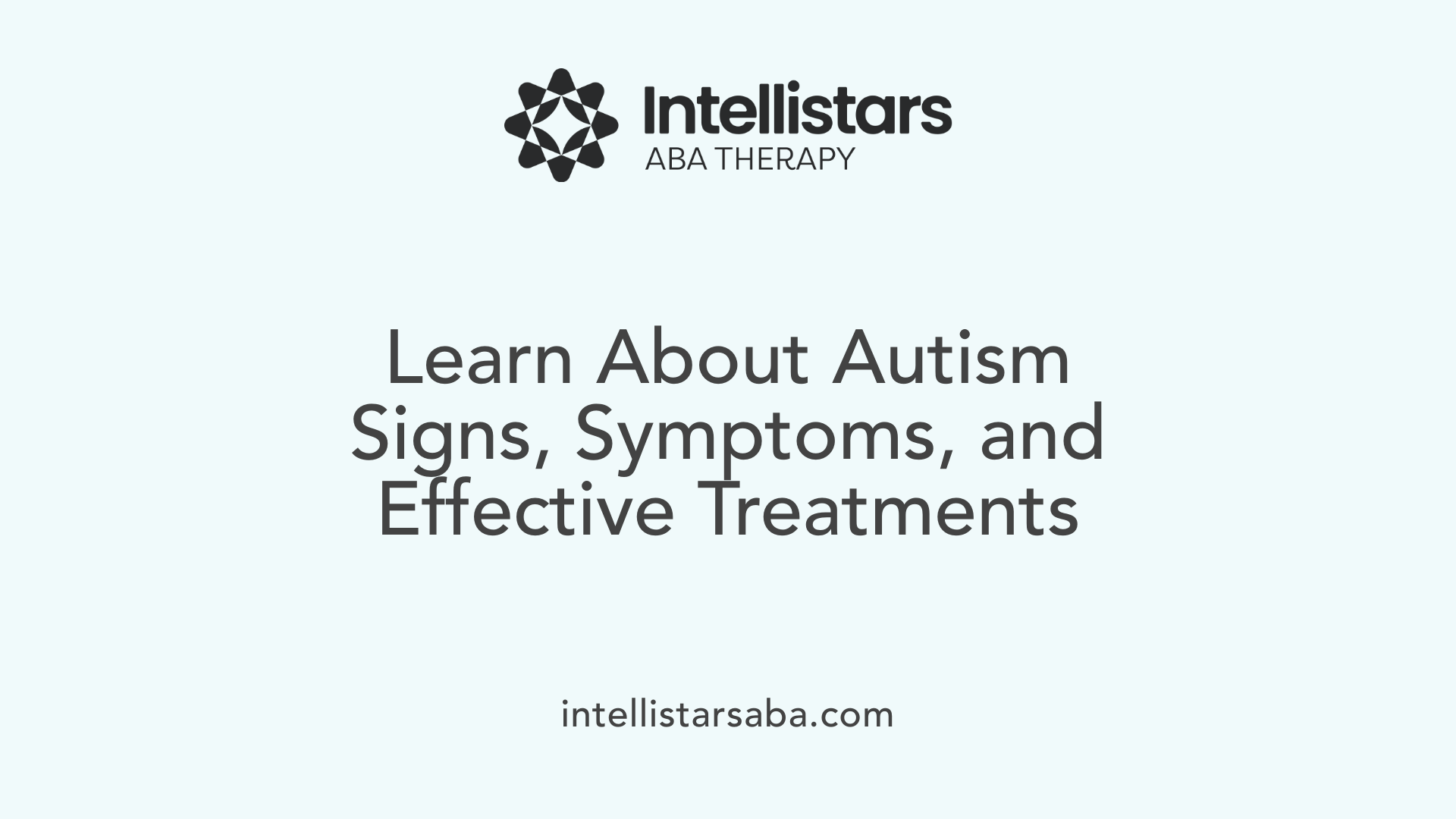Exploring the Best Autism Blogs and Resources for Support and Understanding
In the vast digital world, autism blogs serve as invaluable tools for individuals on the spectrum, their families, advocates, and allies. These blogs not only offer personal stories and community support but also provide expert insights, educational content, and resources that promote greater understanding of autism spectrum disorder (ASD). This article highlights some of the most recommended blogs, the diverse topics they cover, and how they contribute to fostering awareness, acceptance, and advocacy.
Curated List of Prominent Autism Blogs and Resources
 There are numerous trustworthy websites and blogs that serve as valuable resources for autistic individuals and their families. Autism Speaks and the Autism Society are among the most prominent organizations providing extensive guides on diagnosis, intervention strategies, and community support. Their resources help families navigate understanding autism and accessing appropriate services.
There are numerous trustworthy websites and blogs that serve as valuable resources for autistic individuals and their families. Autism Speaks and the Autism Society are among the most prominent organizations providing extensive guides on diagnosis, intervention strategies, and community support. Their resources help families navigate understanding autism and accessing appropriate services.
Seattle Children’s Autism Center maintains an influential Autism Blog that offers expert insights on topics like advocacy, treatment options, and ongoing research. This platform is particularly helpful for caregivers seeking the latest evidence-based information.
For diverse perspectives within the autistic community, the Autistic Self Advocacy Network (ASAN) provides curated resources including books, films, and online materials. Their 'Start Here Resources' serve as a comprehensive introduction to autism, emphasizing acceptance and self-advocacy.
Parent-centered sites such as the Thinking Person’s Guide to Autism, We Are Like Your Child, and Ollibean focus on practical advice, advocacy skills, and community connection. These platforms support parents and caregivers in understanding their child's needs and navigating systemic challenges.
Organizations like The Arc and SABE (Self-Advocacy for Better Employment) go beyond informational content to promote social inclusion, policy advocacy, and employment opportunities for autistic people. They focus on empowering individuals to lead independent and fulfilling lives.
Below is a simplified overview of these trusted resources:
| Organization/Website | Main Focus | Additional Notes |
|---|---|---|
| Autism Speaks | Diagnosis, Intervention, Community Resources | Offers extensive toolkits and advocacy support |
| Autism Society | Support, Education, Policy | Provides local chapters and grassroots programs |
| Seattle Children’s Autism Center | Professional insights, Research | Focuses on evidence-based practices |
| Autistic Self Advocacy Network | Self-advocacy, Media, Resources | Promotes acceptance and peer-led support |
| Thinking Person’s Guide to Autism | Practical advice, Advocacy | Guides for navigating autism issues |
| We Are Like Your Child | Parent stories, Resources | Connects families with community support |
| Ollibean | Resources for youth, Families | Focuses on transition and education |
| The Arc | Advocacy, Policy, Social Inclusion | Supports full community participation |
| SABE | Employment, Self-advocacy | Focuses on employment rights and opportunities |
These organizations and websites constitute some of the best starting points for families seeking information, community, and advocacy resources related to autism.
Autistic Adults' Voices: Blogs and Literature

Are there specific blogs or literature dedicated to autism in adults?
Yes, there is a rich collection of blogs and books authored by or for autistic adults. These resources serve as vital platforms for sharing personal experiences, insights, and advocacy efforts. Many autistic individuals maintain blogs where they discuss their lives, challenges, and successes, helping to foster understanding and community.
Among the notable literature are titles like "Unmasking Autism" by Devon Price, which offers an honest look at the masking behaviors many autistic adults experience, and "A Field Guide to Earthlings" by Shaun McNiff, providing a practical approach to understanding oneself and others within the spectrum. Another influential book is "Connecting with the Autism Spectrum" by Ellen Notbohm, which emphasizes building meaningful relationships.
The curated list of top autism blogs for adults includes contributions from autistic writers such as Grace Liu, Amy Gravino, and Carly Ott, who openly share their perspectives. These digital and print resources are essential for promoting self-acceptance, community connection, and better understanding of what it means to navigate the world as an autistic adult.
Overall, these literary works and blogs are invaluable for both individuals on the spectrum and allies seeking to learn more about adult autism from lived experiences and expert insights.
Understanding Autism: Signs, Symptoms, and Therapy Options

What are common signs and symptoms of autism, and what therapy options are available?
Autism spectrum disorder (ASD) manifests through various signs and symptoms that can appear early in childhood. Recognizable indicators often include difficulties with social interaction, such as limited eye contact, not responding to their name, and struggles in understanding social cues like tone of voice or facial expressions.
Repetitive behaviors are also common. These might involve insistence on routines, repetitive movements (such as hand-flapping or rocking), or intense focus on specific interests. Sensory sensitivities are frequently observed, with children reacting strongly to sounds, lights, textures, or smells that others might ignore. Speech delays or challenges in communicating are prevalent, with some children remaining non-verbal or using alternative communication methods.
While autism cannot be cured, several therapeutic approaches can significantly improve quality of life. Applied Behavior Analysis (ABA) remains one of the most recognized behavioral interventions, helping individuals develop social, communication, and learning skills. Speech therapy focuses on improving communication abilities, while occupational therapy supports sensory integration and daily living skills.
Social skills training is also beneficial, especially as children grow older, to help them navigate social settings more comfortably.
Early intervention plays a crucial role in positive developmental outcomes. By identifying signs early and beginning therapy promptly, children can better acquire essential skills and reduce potential frustrations.
In some cases, medications may be prescribed to manage co-occurring issues like anxiety, hyperactivity, or mood disorders. However, medications do not treat the core symptoms of autism itself.
Overall, a supportive, individualized approach that combines various therapies and strategies can help autistic individuals reach their full potential and lead more independent lives.
Genetic Factors and Autism: What the Research Says
What percentage of autism is believed to be caused by genetic factors?
Current research strongly indicates that genetics play a major role in the development of autism spectrum disorder (ASD). Heritability estimates range from about 83% to 90%, showing a significant genetic influence.
Numerous studies, including family, twin, and population research, support this high genetic contribution. These studies suggest that most cases of autism are inherited or linked to genetic variations passed down within families.
Specific genes associated with autism include those involved in brain development, synaptic functioning, and neural connectivity. Variants such as single nucleotide polymorphisms (SNPs) and mutations in certain genes contribute to the overall risk, highlighting the complex genetic architecture behind ASD.
In comparison, environmental factors do have an influence, but their impact appears smaller. External influences might include prenatal conditions, exposure to toxins, or early life stress, but these factors generally account for a smaller proportion of autism cases.
To sum up, the majority of autism causes are believed to stem from genetics, with estimates suggesting that around 80-90% of cases can be explained by genetic factors alone.
| Aspect | Importance | Examples/Notes |
|---|---|---|
| Heritability estimates | 83%-90% | Based on twin and family studies |
| Genetic contributions | Significant | Specific mutations and gene variants involved |
| Environmental factors | Smaller role | Prenatal exposures, toxins, early stress |
| Overall genetics impact | 80-90% | Primary influence on autism risk |
Understanding these genetic influences helps inform ongoing research, early diagnosis, and tailored interventions, emphasizing the importance of genetics in autism's complex landscape.
Stories of Inspiration and Success in the Spectrum
Many individuals on the autism spectrum have shared remarkable stories of resilience, achievement, and societal contribution. These stories serve as powerful examples of what can be accomplished with the right support, understanding, and opportunities.
One of the most renowned figures is Temple Grandin, whose groundbreaking work in animal behavior has not only advanced the field but also challenged stereotypes about autism. Her story exemplifies how unique perspectives can lead to innovative contributions.
Young talents like Jacob Velazquez have gained recognition as talented pianists, demonstrating that autistic individuals can excel in the arts and inspire others through their skills.
Beyond individual talents, stories such as those of Kerry Magro and Jason McElwain highlight the importance of perseverance. Kerry Magro, an autistic advocate and speaker, has shared his journey of overcoming challenges and inspiring others to embrace neurodiversity.
Similarly, Jason McElwain, known for his remarkable basketball performances, has become a symbol of determination and inclusion in sports.
These inspiring stories are often marked by overcoming personal hurdles, finding communities of support, and becoming advocates. For instance, many, like Andrew and Jo, have used their experiences to promote awareness, acceptance, and inclusion, showing that challenges can transform into sources of strength.
Diverse talents among autistic individuals span various fields including arts, science, sports, and advocacy. Their contributions underscore that autism does not limit achievement but can be a unique lens for societal enrichment.
Summary of notable individuals and their contributions:| Name | Area of Achievement | How They Inspire | |------------------|------------------------|--------------------------| | Temple Grandin | Animal behavior & autism advocacy | Shatters stereotypes, demonstrates success in STEM | | Jacob Velazquez | Music and arts | Inspires through creative talent | | Kerry Magro | Autism advocacy & speaking | Promotes understanding & acceptance | | Jason McElwain | Sports | Embodies perseverance & inclusion |
These stories continue to motivate many and emphasize the importance of community, advocacy, and embracing neurodiversity in society.
Empowering Knowledge and Community through Autism Blogs
Autism blogs serve as a vital resource for sharing knowledge, fostering community, and promoting understanding. From personal stories to expert advice, they help break down misconceptions and celebrate diverse experiences. Whether you are seeking support, education, or inspiration, exploring the recommended blogs and resources provides a pathway to greater awareness and inclusion. As the autistic community continues to grow and be heard, these digital platforms play a crucial role in shaping a more understanding and accessible society.
References
- Autism blog - by Kieran Rose. Autistic blogger - The Autistic Advocate
- Stories from the spectrum - National Autistic Society
- ActuallyAutistic bloggers | The Art of Autism
- The Autism Blog - Seattle Children's Hospital
- The Autism Cafe - Autism Mom Blog
- Autism is a significant part of my life but not the only part, and I want ...
- 100 Best Autism Blogs To Read in 2025 (Autistic Bloggers)
- The Heritability of Autism Spectrum Disorder - PMC
- How Heritability Affects Autism Spectrum Disorder - SkyCare ABA
- Understanding Can Autism Run in Families | Precious Care ABA






